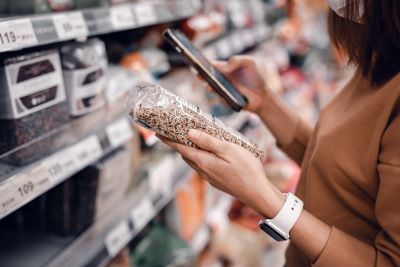Value Chains and Consumption
The longer the food value chains, the more actors are involved, and the more transport and coordination is needed between the different parts of the value chains. The bulk of food items consumed in Sweden are produced in complex and long value chains, that in turn consume resources and bring in a distance between consumers and farmers. Digital tools and platforms can enable new solutions and bring food actors closer together. For example, many small, innovative local food distribution systems depend on social media and/or online platforms (e.g., REKO-ringar, box schemes).
Consumer perspective and practices
The ongoing transitions in other sectors – such as of energy, transportation, mining and water – are also affecting the food value chains. Multi-system transitions are expected to have transformative effects on various parts of agro-food value chains, changing how we produce, process, package, supply and distribute food. For instance, renewable and cheap energy, together with electrification of transport systems, can facilitate several niche innovations and new business models, such as, within urban agriculture and data-driven supply chains.
Understanding consumer perceptions is needed for a transition towards more sustainable and healthy diets, for instance, both in public procurement and in private households. For public procurement, sustainability issues need to become more prominent in the procurement process, without violating the Law on Public Procurement (LOU, lagen om offentlig upphandling) regulation. The broader consumer perspective is a large research area and encompasses sustainable practices as such (e.g. in respect to shopping food, food waste minimization) as well as supportive measures for these practices. This typically includes different digital tools (e.g. feeding back information about the environmental impact of food choices) and new marketing strategies. The consumer acceptance is also a key issue for innovations for alternative protein substitutes such as cell-based and plant-based meat alternatives.

